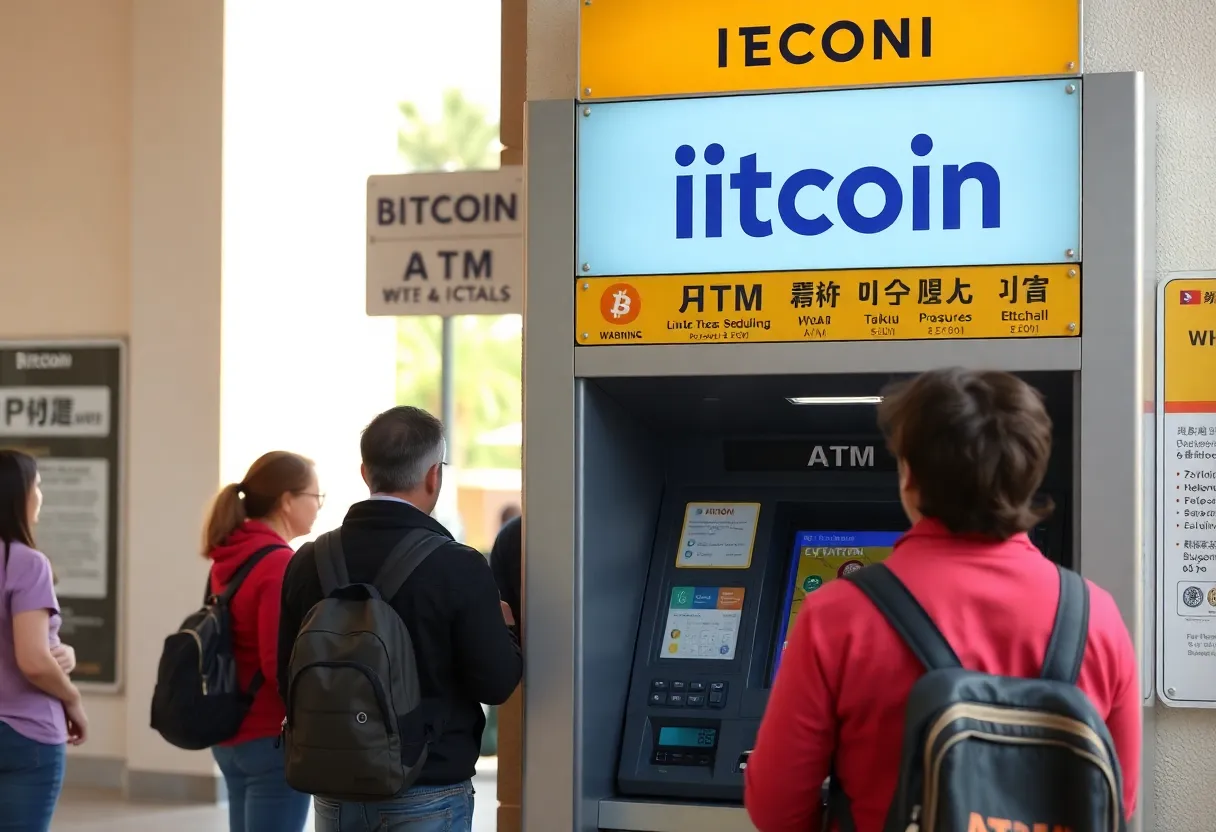News Summary
Arizona Governor Katie Hobbs has vetoed key cryptocurrency bills aimed at establishing state reserves for digital assets, citing volatility risks. Instead, she approved consumer protection regulations for Bitcoin ATMs, including risk warnings and refund policies for scams. The balance reflects her cautious approach to cryptocurrency as Arizona grapples with its financial implications.
Arizona Governor Katie Hobbs has vetoed two major cryptocurrency bills while simultaneously passing consumer protection regulations for Bitcoin ATMs. The vetoes came on May 12, and they signal Hobbs’ cautious approach to the emerging field of digital assets given concerns over the market’s volatility and potential risks to taxpayer funds.
Among the bills vetoed was Senate Bill 1373, which aimed to create a Digital Assets Strategic Reserve Fund. This fund would have permitted Arizona to hold cryptocurrency gained through seizures or legislative allocations. In her veto letter, Hobbs articulated her concerns regarding the fluctuating nature of the cryptocurrency markets, highlighting the imprudence of investing general fund dollars in uncertain assets.
Hobbs also rejected Senate Bill 1025, known as the “Arizona Strategic Bitcoin Reserve Act,” which sought permission to invest up to 10% of the state’s treasury and retirement funds in Bitcoin and other digital currencies. Her opposition to these bills reflects a broader intent to protect public finances without jeopardizing taxpayer investments.
Another significant veto was against Senate Bill 1024, a proposal that would have enabled state agencies to accept cryptocurrency payments for taxes, fees, and fines through authorized service providers. The governor expressed concerns about bringing excessive risk into the state’s financial dealings, despite proposed measures aimed at minimizing exposure to the inherent volatility associated with cryptocurrencies.
While vetoing several measures, Hobbs did sign House Bill 2387 into law on the same day. This legislation introduces stringent consumer protection guidelines for operators of cryptocurrency kiosks, or Bitcoin ATMs, with the objective of reducing fraud and enhancing transparency for consumers engaging in digital asset transactions.
The new regulations stipulate that all kiosks must offer clear, multilingual warnings about prevalent scams in the cryptocurrency space, and users must confirm that they understand these risks before finalizing transactions. Furthermore, operators are required to provide detailed receipts containing transaction data, contact information, fees, and refund policies.
House Bill 2387 also places transaction limits on cryptocurrency kiosks, which cap daily transactions at $2,000 for new customers and $10,500 for returning customers after a period of 10 days. In addition, kiosk providers must maintain a 24/7 toll-free customer service line, which must be visibly posted at each machine to aid consumers in navigating their transactions.
If a new user falls victim to a scam and reports the incident with supporting evidence within 30 days, they are entitled to a complete refund, including any transaction fees charged during the process.
As of now, Arizona is home to 20 active Bitcoin ATMs, as reported by CoinATMRadar, indicating a growing interest in cryptocurrency transactions despite the mixed legislative climate in the state.
In tandem with these initiatives, Hobbs also signed House Bill 2749, which revises Arizona’s unclaimed property laws to encompass digital assets. This change allows the state to hold onto unclaimed cryptocurrencies instead of converting them into traditional fiat currency.
According to reports from bitcoinlaws.io, Arizona is one of 26 U.S. states that have introduced strategic crypto reserve bills, with 18 of these proposals currently in an active legislative stage. These actions reflect a broader nationwide trend as states seek to navigate the complexities and potential benefits of integrating cryptocurrency into their financial frameworks.
Deeper Dive: News & Info About This Topic
- Cointelegraph: Arizona Governor Vetoes Crypto Bills, Approves Bitcoin ATM Law
- Google Search: Arizona Governor Katie Hobbs vetoes crypto bills
- Crypto Briefing: Arizona’s Digital Asset Reserve Veto
- Wikipedia: Cryptocurrency
- CoinSpeaker: Arizona Governor Vetoes Crypto Bills, Targets Bitcoin ATMs
- Encyclopedia Britannica: Bitcoin
- StateScoop: Arizona Governor Katie Hobbs and Bitcoin Reserve
- Google Search: Arizona bitcoin ATM regulations
- CoinCentral: Arizona Blocks Bitcoin Reserve Bill but Signs Another Crypto Law
- Google News: Arizona crypto legislation

Author: STAFF HERE PHOENIX WRITER
The PHOENIX STAFF WRITER represents the experienced team at HEREPhoenix.com, your go-to source for actionable local news and information in Phoenix, Maricopa County, and beyond. Specializing in "news you can use," we cover essential topics like product reviews for personal and business needs, local business directories, politics, real estate trends, neighborhood insights, and state news affecting the area—with deep expertise drawn from years of dedicated reporting and strong community input, including local press releases and business updates. We deliver top reporting on high-value events such as the Waste Management Phoenix Open, Cactus League Spring Training, and Arizona State Fair. Our coverage extends to key organizations like the Greater Phoenix Chamber of Commerce and Visit Phoenix, plus leading businesses in technology and healthcare that power the local economy such as Intel and Banner Health. As part of the broader HERE network, including HERETucson.com, we provide comprehensive, credible insights into Arizona's dynamic landscape.





